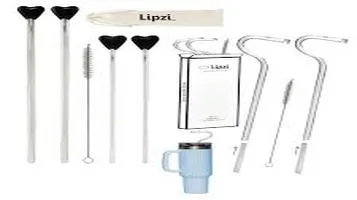Anti-Aging Skincare Products – The Quest for Timeless Beauty
Anti-aging skincare focuses on maintaining youthful, radiant skin by addressing the signs of aging such as wrinkles, fine lines, and age spots. This approach typically includes a comprehensive regimen of products and practices designed to nourish, protect, and rejuvenate the skin. Key components often include antioxidants like vitamin C, which help neutralize free radicals, and retinoids that promote cell turnover and collagen production. Hyaluronic acid is another staple, providing intense hydration to plump the skin and reduce the appearance of wrinkles. Sunscreen is crucial in any anti-aging routine to prevent UV damage, a major contributor to premature aging. By combining these elements, anti-aging skincare aims to preserve skin's elasticity, even tone, and smooth texture, helping individuals maintain a youthful appearance over time.

In today's fast-paced world, the desire to look youthful is more prominent than ever. Anti-aging skincare products have become a staple in many people's beauty regimens, promising to reduce wrinkles, enhance skin elasticity, and restore that coveted youthful glow. With a plethora of products flooding the market, it’s essential to discern which ones truly deliver on their promises. This review delves into the world of anti-aging skincare, examining its efficacy, ingredients, and whether it’s truly a game-changer in the fight against time.
The Science Behind Anti-Aging Skincare
At the heart of anti-aging skincare lies the promise of reversing or slowing down the signs of aging. The primary culprits of skin aging include UV radiation, pollution, and the natural decline of collagen and elastin production. Anti-aging products aim to combat these factors through a variety of active ingredients.
Retinoids: These Vitamin A derivatives are hailed as the gold standard in anti-aging skincare. Retinoids accelerate cell turnover, stimulate collagen production, and help fade pigmentation. Clinical studies back their efficacy, but they can be irritating to the skin, especially for beginners.
Hyaluronic Acid: A powerful humectant, hyaluronic acid can hold up to 1,000 times its weight in water, making it a vital hydrating ingredient. It plumps the skin, diminishing the appearance of fine lines and wrinkles.
Vitamin C: An antioxidant superstar, Vitamin C neutralizes free radicals, brightens the skin, and boosts collagen synthesis. Its ability to protect against UV-induced damage makes it a potent anti-aging agent.
Peptides: These short chains of amino acids signal the skin to produce more collagen, improving skin firmness and elasticity.
Alpha Hydroxy Acids (AHAs) and Beta Hydroxy Acids (BHAs): These exfoliants slough off dead skin cells, promoting a smoother and more even complexion. AHAs are water-soluble, making them ideal for dry skin, while BHAs penetrate deeper into the pores, benefiting oily and acne-prone skin.
Efficacy of Anti-Aging Products
The effectiveness of anti-aging skincare products largely depends on their formulation and consistency of use. Products with a higher concentration of active ingredients generally offer better results. However, it's crucial to introduce these potent ingredients gradually to avoid irritation.
Retinoids and Retinol: Prescription-strength retinoids like tretinoin deliver faster and more noticeable results than over-the-counter retinol. However, OTC retinol is a great starting point for those with sensitive skin. With consistent use, expect to see improvements in skin texture, tone, and reduction in fine lines within 12 weeks.
Hyaluronic Acid: While it provides immediate hydration and plumping effects, its anti-aging benefits are more supportive, enhancing the efficacy of other active ingredients.
Vitamin C: Products with a concentration of 10-20% Vitamin C, combined with other antioxidants like Vitamin E and ferulic acid, offer significant improvements in skin brightness and reduction of sunspots over time.
Peptides: Peptides work well in conjunction with other anti-aging ingredients. While they may not deliver dramatic results overnight, their role in long-term skin health is invaluable.
AHAs and BHAs: Consistent use of these exfoliants results in a smoother, more radiant complexion. AHAs like glycolic acid and lactic acid are particularly effective in reducing the appearance of fine lines and improving skin texture.
Potential Drawbacks
Despite their benefits, anti-aging products can pose certain challenges. The most common issues include:
Irritation and Sensitivity: Potent ingredients like retinoids and high-concentration Vitamin C can cause redness, peeling, and irritation, especially for first-time users. It’s advisable to start with lower concentrations and gradually increase usage.
Cost: High-quality anti-aging products can be expensive. While there are budget-friendly options, premium formulations with proven efficacy often come with a higher price tag.
Overhyped Claims: The skincare industry is notorious for exaggerating the capabilities of their products. Consumers should approach bold claims with skepticism and rely on ingredient lists and scientific backing rather than marketing.
The Verdict
Anti-aging skincare products, when chosen wisely and used consistently, can indeed deliver on their promises to a considerable extent. They offer a multi-faceted approach to combating the signs of aging, from boosting collagen production to providing essential hydration and protection against environmental damage.
However, it’s important to manage expectations. These products can significantly improve the appearance and health of your skin, but they are not magic potions that will completely halt the aging process. A holistic approach, combining a well-rounded skincare routine with a healthy lifestyle, sun protection, and perhaps professional treatments, is the most effective strategy for maintaining youthful skin.
In conclusion, the world of anti-aging skincare is both promising and complex. By understanding the science behind the ingredients and setting realistic expectations, consumers can navigate this landscape more effectively and select products that truly enhance their journey towards timeless beauty.






